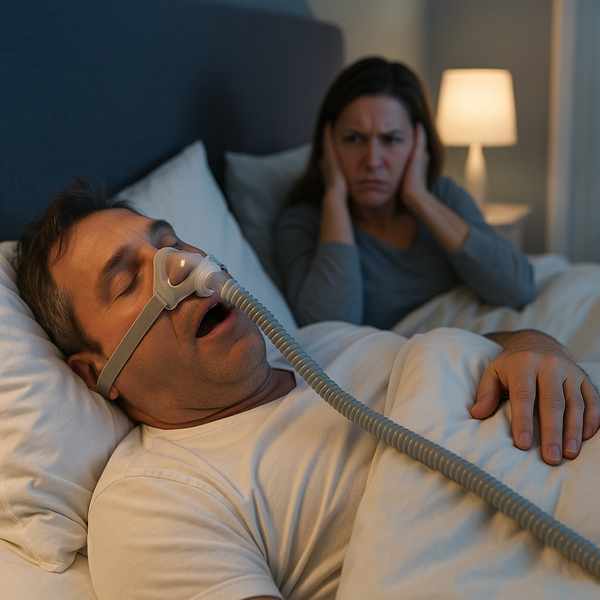
Sleep apnea is a common sleep disorder that affects breathing during rest.
While not always a complete cure, weight loss often lowers the impact of sleep apnea significantly.
What Is Sleep Apnea?
The most common form is obstructive sleep apnea (OSA), caused by blocked airways.
Common symptoms include:
- Loud snoring
- Interrupted breathing patterns
- Excessive daytime tiredness
- Morning headaches or dry mouth
Why Excess Fat Matters
Carrying extra weight, especially around the neck and upper body, can put pressure on the airway during sleep.
Key risk factors include:
- High BMI (Body Mass Index)
- Narrows the airway path
- Can contribute to airway collapse
Can Weight Loss Cure Sleep Apnea?
In many cases, losing weight can dramatically reverse or manage sleep apnea symptoms.
Possible benefits of weight loss and sleep weight loss:
- Improved nighttime breathing
- Reduced risk of waking up during sleep
- More natural treatment options
- Feel more rested and alert
However, weight loss may not cure sleep apnea in all cases — especially if anatomical issues or severe OSA are present.
Realistic Expectations
Studies show that losing just 10% of body weight can reduce OSA severity by up to 50%.
Tips:
- Focus on progress, not perfection
- Sustainable changes make a difference
- Notice snoring, energy, and daytime fatigue improvements
Natural Weight Loss Tips for Better Sleep
Effective strategies:
- Limit sugar and processed carbs
- Boosts metabolism and burns fat
- Helps open up the airway naturally
- Avoid alcohol and sedatives
Working with a nutritionist or sleep specialist can provide more personalized support.
When Weight Loss Isn't Enough
While weight loss is helpful, it may not fully resolve sleep apnea for everyone.
- CPAP therapy (Continuous Positive Airway Pressure)
- Oral appliances
- Surgery in severe cases
Is Weight Loss the Answer?
So, can weight loss cure sleep apnea? In many cases, it can help manage the condition.
Talk to your healthcare provider, make informed decisions, and take proactive steps toward better health and rest.